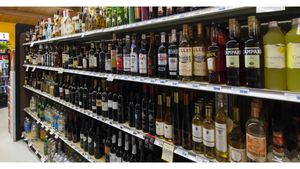Spotlight on: Blount Fine Foods
Blount Fine Foods is further establishing themselves as market experts, offering full fresh soup product range and service that covers everything, from soup to nuts.
January 1, 2018
Blount Fine Foods is further establishing themselves as market experts, offering full fresh soup product range and service that covers everything, from soup to nuts.
The company’s specialty is in its name: fine foods.
Blount Fine Foods has focused on producing the highest-quality soups for the foodservice and private label retail industries for the past 20 years. Now, the Fall River, Mass.-based company is putting its best soup forward as a retail brand, and expanding its reach into the organic channel, fresh entrée and side dish categories.
While Blount’s product offerings are evolving, the company attributes its success in the soup category to its long-term focus on just that—soup. Its dedication to delivering custom restaurant-quality soup accompanied by ever-changing program support is showing the industry that sometimes offering less really is more.
Dedication is in the company’s roots, which date back to the 1880s when the Blount family joined the oyster business in Rhode Island. When the oysters ran out, clams became the focus for Blount Seafood—as it was then called—before the company began processing food as Blount Fine Foods in the 1990s. Over the next 20 years the company’s leaders slowly diversified both its customer base and product offerings.
Soup was one of them.
The value of diversification was an important lesson Todd Blount, the company’s current president, learned from his father when he joined the company in 1994—accompanied by Bob Sewall, the company’s now executive vice president of sales and marketing. The benefit of exiting certain channels in order to invest and focus on a core product was another.
“It was important for us when we took over to figure out what categories to pursue in order to create a story that highlights what we do best,” says Blount about the company’s decision to more narrowly focus on the soup category.
The first 10 years, Blount says, were spent in the trenches planting the seeds for the company’s current private label foodservice program, including retail delis’ hot-to-go offerings. Slowly after that began to take hold, the company got its foot in the retail door when some of their foodservice customers wanted to capitalize on retail sales with a “wall of soup.”
“At the time, retailers were looking for the ‘best trends in the best markets in the most exciting areas.’ When they visited Manhattan, they would see stores featuring a wall of soup—different colors, different sizes, minimal labeling—and they thought it was one of the most attractive displays in the market,” he adds.
Answering the marketplace’s demand, Blount Fine Foods invested in the necessary equipment, learned the ropes and eased its products onto delicatessen and grocery store shelves.
It did not take long for the team to recognize that they knew more about this category than any other. Strategically shedding lower-margin commodity products, Blount Fine Foods focused everything it had behind its value-added prepared foods with the goal of becoming the “premier option” for an in-store soup program.
“We basically became the ‘industry experts’ on how to run a private label soup program—hot and cold. A lot of it had to do with investing in the right equipment and learning as we go,” says Blount.
The company has an ambitious research and development team. Each and every day the chefs are experimenting with new recipes and improving the 500-plus proprietary private label recipes they have in the market. According to Jeff Wirtz, the company’s corporate executive chef and director of research and development, the team may work on 400 projects a year.
“We take a lot of risks,” he says. “But because we are out in the field so much, we are always sharing ideas with customers and tweaking them based on feedback. We are a custom house so we really try to listen to them and make products that fit a customer’s needs.”
Creating the right product mix for a retailer is the company’s forte. It is not uncommon for retailers to hand over the reins and ask the company to run their soup program and tell them what to sell.
That has as much to do with the service element of their program as it does their recipe creation. When a new program is set, the team sets out to perfect it and what that means is always changing.
Blount describes the programs as “being alive;” once a program is “turned on,” the team is getting ready to change it. “It is like a living breathing program, and this is really important. If you create a private label program, and then ‘set it and forget it,’ it will just disappear,” he says.
Building a brand
Disappear they will not.
After more than a decade of building the private label and foodservice channels of the business, Blount and Sewall recognized a new need in the market—a national retail brand.
For Blount Fine Foods, that brand is Panera Bread. “Panera Bread has been the single greatest influence on fresh soup category growth across the country, and it is primarily the next generation. Those in the Millennial demographic and younger—teenagers and kids—grew up going into Panera with their parents. There is a feeling connected to the brand,” Blount adds.
The success of the Panera Bread fresh soup line rooted Blount Fine Foods’ position as a full-service producer for the fresh soup channel. Despite some concern over cannibalizing the category, retailers who complement their private label offerings with the Panera Bread line—launched in 2008—have experienced an uptick in overall category and private label sales, says Blount; they bump each other up.
Now, the company has embarked on what Blount calls the company’s “third phase”—Blount Organics. The line kicked off with refrigerated organic soup offerings and is expanding to include organic entrées and side dishes.
“There is no national player in organic fresh foods, so we are going to fill that void,” notes Sewall. “We know consumers are eating healthier, but they are not going to wake up one day and become a vegan. So what we are doing is developing robust and hearty soup, sides and entrées that target, not the 2% of shoppers that are dedicated organic eaters, but the 98% who want to eat healthy without compromising flavor.”
Part of the trend towards eating healthy is about “eating clean,” he adds. “It is not about losing weight, per say, it is about understanding the ingredients. All the labels in the line read clean. Even when it comes to something like a clam chowder, which isn’t typically a low-calorie option, the label includes real clams, real dairy, real potatoes, etc.”
The organic soup line includes some similar flavors to their private label offerings, but retailers will likely see some new and creative varieties come across the shelves. Consumer tastes are evolving faster than ever before, says the team, and the Blount Organics line serves as an outlet for the company to directly meet these demands.
That includes not just flavors but packaging. The trends toward fresh foods and convenience continue to overlap prompting the company to continually evaluate the best delivery method. A couple years ago, Blount Fine Foods pioneered a small 10-ounce cup with a peelable film designed for heat and serve that they describe as “revolutionary.”
It was an investment that Blount says has paid off, and the molds and equipment purchased to develop that size container are now utilized everyday. The nature of being privately owned allows officials to make quick, smart decisions about where its investments are made. Currently, the company is exploring locations to build an additional production plant—the Southwest is likely, in an effort to more easily meet the delivery needs for their growing national customer base.
About the Author
You May Also Like




